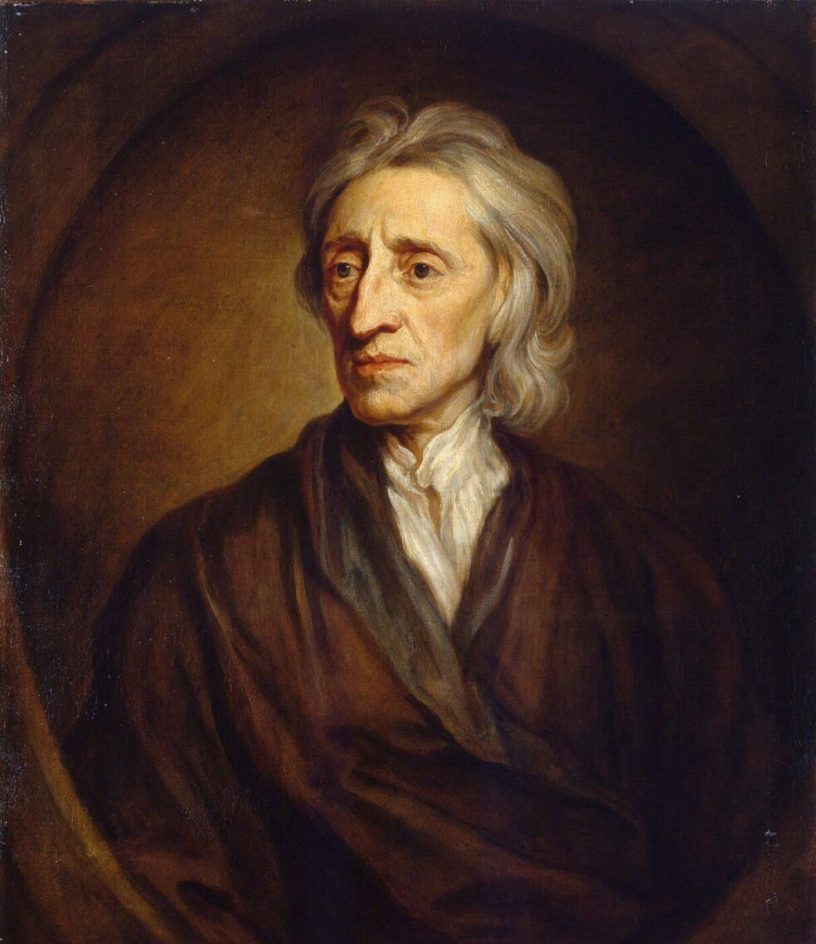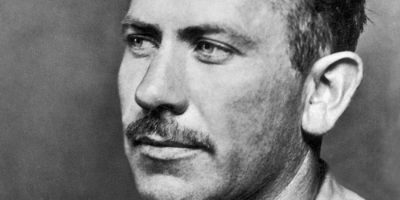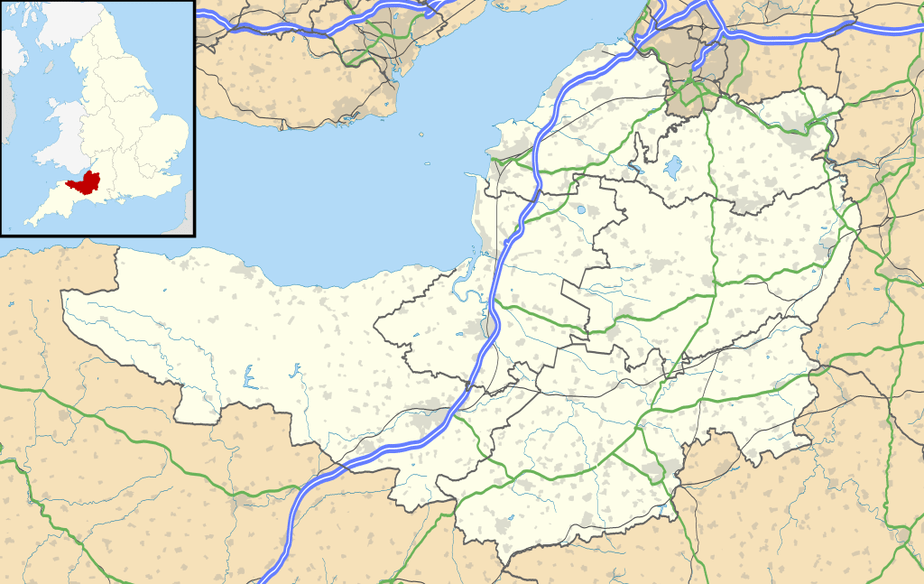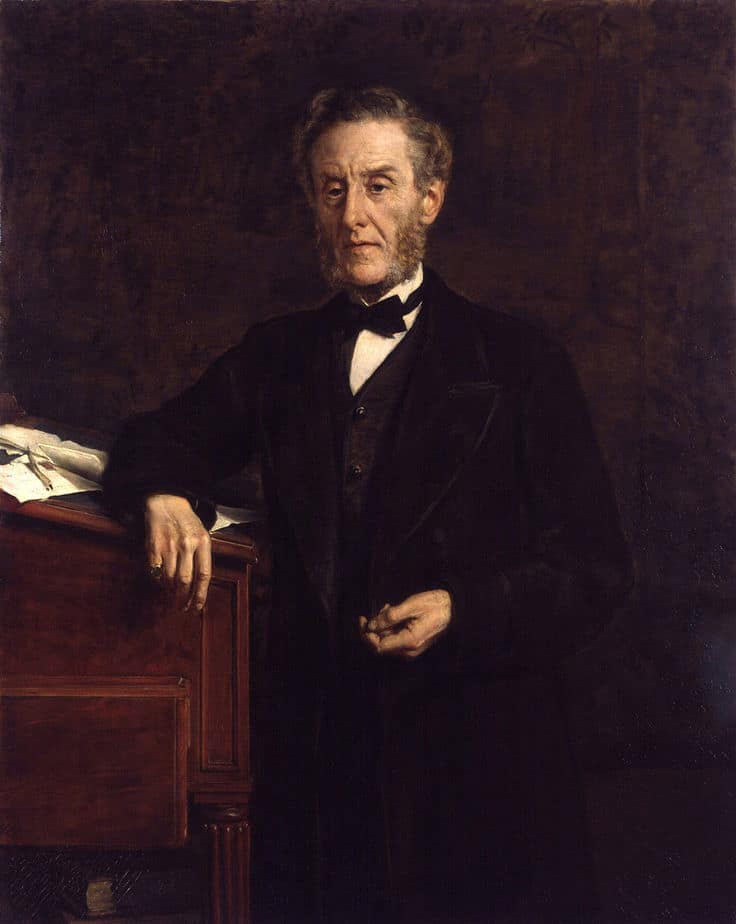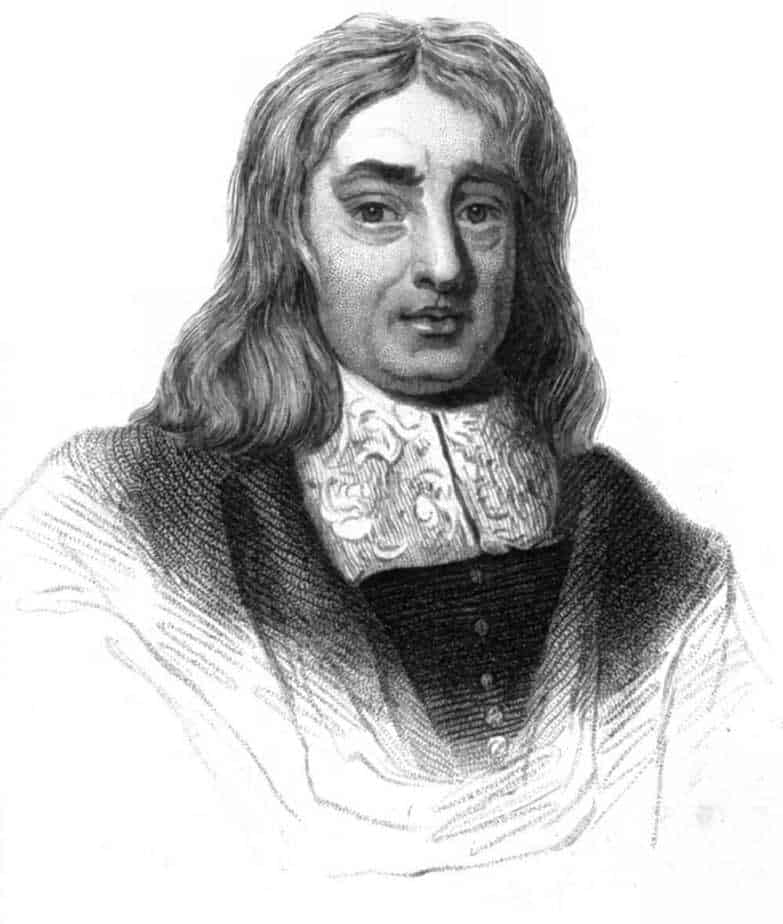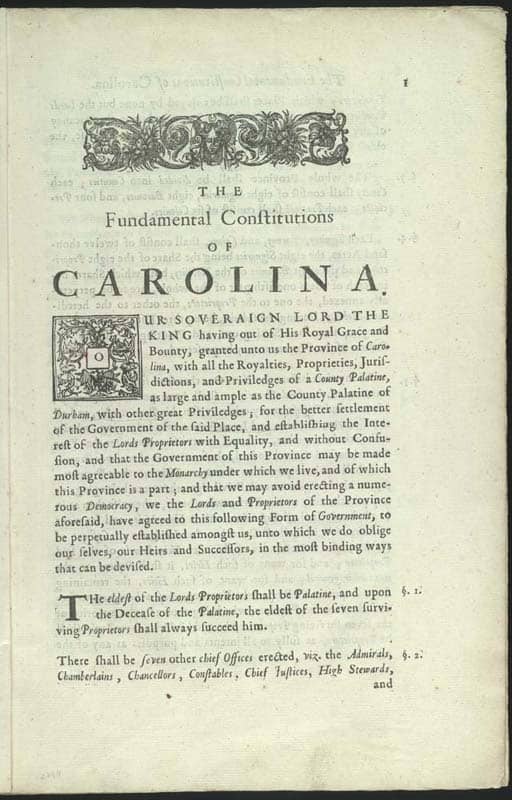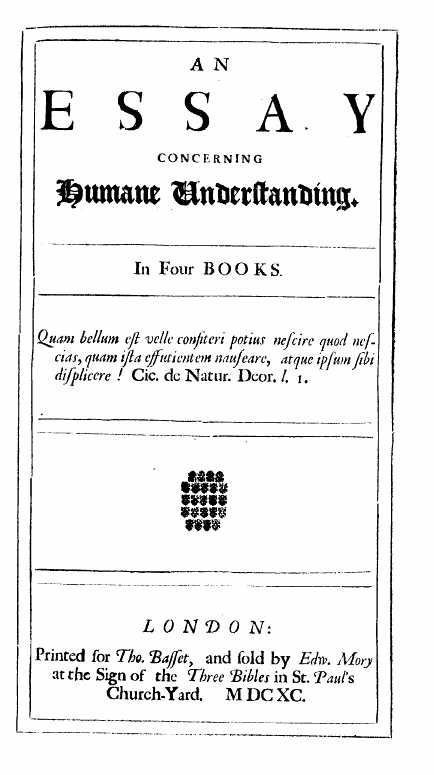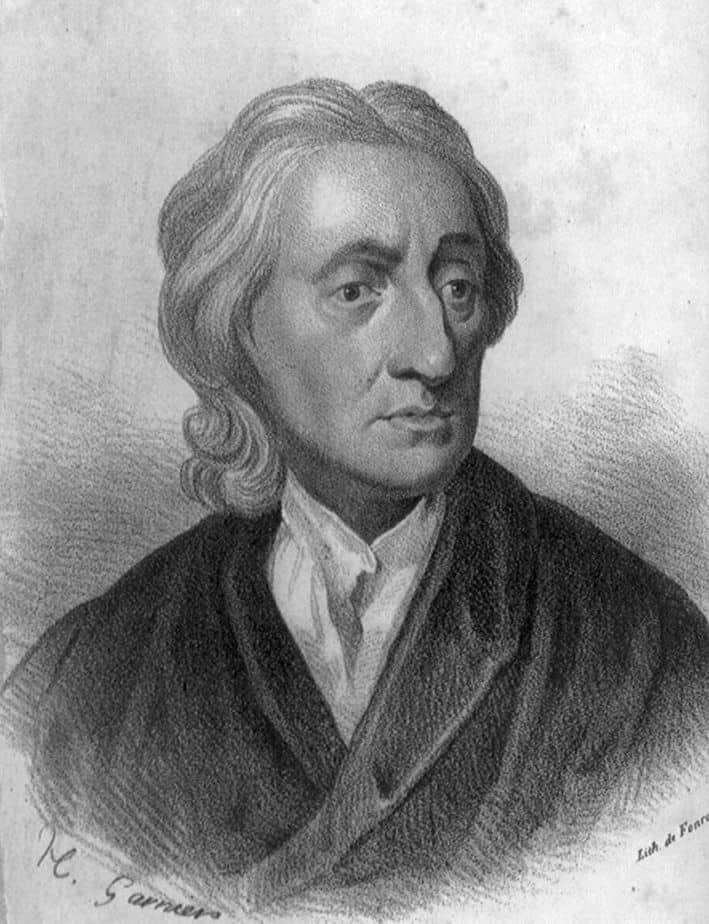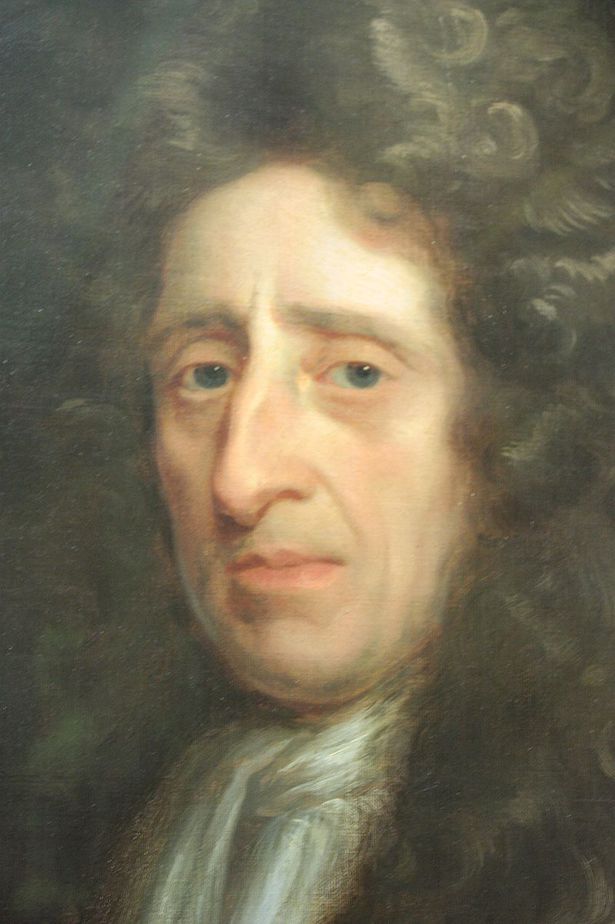Top 20 Facts about John Locke
Originally published by Lynn on March 2020 and updated by Charity K on August 2022 and Updated by Vanessa R in August 2023
John Locke is a 17th century English philosopher and political theorist who is widely renowned for laying the groundwork for Enlightenment and the development of liberalism. His political theory of government by the consent of the governed as a means to protect the three natural rights of “life, liberty and estate” is the basis of the American Declaration of Independence.
He is known to publish a series of writings which a profound and lasting impact on people such as his “Essay Concerning Human Understanding,” where he advocates a theory of the self as a blank page, with knowledge and identity arising only from accumulated experience. Get to learn more about the fascinating life of John Locke in these top 20 interesting facts about him.
1. John Locke’s actual name is John Locke, Jr.
John Locke was born on 29th August 1632 in Wring ton, Somerset, England to John Locke and Agnes Keene. He was named after his father meaning his father was John Locke Senior while he was John Locke Junior.
John Locke Junior had a brother who was two years his senior, Thomas Locke. The Lock family wasn’t rich but lived a comfortable life as Senior Locke was in the Parliament forces. During his early years at Oxford, Locke Jr. lost his mother. His father died in 1661 and in 1663, two years after the death of his father, his only brother, Thomas, died. Locke Jr. was left without a family by the time he was in his early thirties.
2. John Locked graduated from the University of Oxford.
For the first 14 years of his life, he was homeschooled by his father. At the age of 15 John sent to the prestigious Westminster School in London where he studied Latin, Hebrew, Greek and Arabic so that he could read the books written in those languages.
In 1652 when he was 20 years he was awarded a scholarship to Christ Church School in Oxford where he studied philosophy, logic and other related courses. During his studies, he found little appreciation for traditional philosophers but appreciated and enjoyed modern philosophers like Rene Descartes. He graduated with a bachelor’s degree in February 1656 and a master’s degree in June 1658.
3. John Locke studied medicine and served as a physician.
Unknown to many people John was also a remarkable physician. In his later years at Oxford John natural philosophy, present-day medicine and science. While studying, he worked with well-known scientists such as Robert Boyle, Thomas Willis, Robert Hooke and Richard Lower. He graduated with a bachelor’s degree in medicine in 1675.
In 1666, he met Lord Anthony Ashley Cooper, who was soughing treatment for liver infection at Oxford. Impressed by John’s work he appointed him his personal physician. In 1667 John moved into Lord Ashley’s home in London. When Lord Ashley’s liver got worse John performed a remarkable operation where he inserted a silver tube into the tumor which allowed it to be drained regularly. This relieved Lord Ashley of so much pain and even elongated his life.
4. John Locke was mentored by Lord Ashley and Thomas Sydenham.
While working as Lord Ashley’s Physician John also assisted him with his public business and political affairs. Lord Ashley who became the 1st Earl of Shaftesbury and founder of the Whig movement greatly influenced John’s political ideas and life. Through the support of Lord Ashley John was able to hold a series of governmental posts such as Secretary of the Board of Trade and Plantations and Secretary to the Lords Proprietor of Carolina.
John also formed a close relationship with a famous physician known as Thomas Sydenham who became his mentor. Thomas not only trained John in medical practices but also influenced his political thinking. In 1668 John became a member of the Royal Society.
5. He is accused of hypocrisy due to the Constitutions of Carolina.
John Locke was a great philosopher who encouraged tolerance in his works, no doubt about that but many accuse him of being a hypocrite and racist who cared only for the liberty of English capitalists. These accusations are justified with the simple fact that John was a major investor in the English slave-trade through the Royal African Company.
Also in 1669, John participated in drafting the Fundamental constitutions of Carolina, a British colony in America at the time. The constitution did not depict the levels of tolerance advocated by John in his writings especially Article 110 which states, “Every freeman of Carolina shall have absolute power and authority over his Afro-American slaves.”
6. He fled from England on two separate occasions.
Lord Ashley was the most powerful man in England serving as Lord Chancellor of England but soon lost all his power and faced imprisonment because of his political views that resulted in Charles II disfavoring him. John Lock and his political mentor Lord Ashley were Protestants who opposed the succession of the Roman Catholic brother of Charles II, James.
Upon seeing the harsh fate his mentor encountered and fearing that he might suffer the same fate John moved to France in 1675. He returned to England in 1679 after Lord Ashly was granted restoration from exile. However, this was short-lived.
In 1683, there was an assassination attempt on the lives of Charles II and his brother, James. The Rye House Plot was uncovered to be behind it and this led Charles into running away from England again. Being a protestant closely associated with the Rye House John was suspected of being involved and as a result he took refuge in the Netherlands. He only returned to England after King James II had been overthrown, that was five years later. It is unknown if John actually participated in the assassination attempt but historians believe he was not involved in the plot.
7. John Locke’s major works were written after he was 60 years.
Most of John’s best known monumental works were written and published after his return from exile in 1689. The three major writings of John Locke were published in quick succession of each other and ended up being very influential works of philosophy that influenced political, religious and education sectors.
The three important works of John include, “An Essay Concerning Human Understanding” which inspects the human mind, “Two Treatise of Government” which is his most important political work and “A letter Concerning Toleration” which puts forward strong reasoning in favor of religious tolerance.
His other well-known works include “Reasonableness of Christianity, written in 1695. It argues it is reasonable to be Christian and “Some Thoughts Concerning Education” written in 1693. It remains one of the most important philosophical work on education in England.
8. John Locke is regarded as the Father of Liberalism.
John Locke is considered the Father of Liberalism on his ideas of liberty and equality. He is the man behind the notion that government acquires consent from the governed and therefore authority is derived from the people and not the government. Most scholars trace the phrase “life, liberty, and the pursuit of happiness” in the Declaration to Locke’s everyone has a natural right to defend his “Life, health, Liberty, or Possessions”.
He was not only known as liberalism, but he was also regarded as the founder of empiricism and influential philosopher who not only imparted his home country but also greatly influence 18th century America.
9. He had a close relationship with Damaris Masham, and he died at her house.
Damaris Cudworth Masham, the wife of Sir Francis Masham, met John Locke in her early twenties and maintained a close personal relationship with him for the remainder of his life. John Locke was also impressed by the young lady and described her in a letter to a friend as: “The lady herself is so well versed in theological and philosophical studies, and of such an original mind that you will not find many men to whom she is not superior in wealth of knowledge and ability to profit by it.”
In 1691, Lady Masham invited Locke to live in her household in Essex which he accepted. John lived there until his death on 28th October 1704 when he was 72 years. He died of health problems which he has suffered from most of his adult life. He was buried in the churchyard of the village of High Laver, Essex.
10. John Locke never married nor had kids.
Locke only shared a close Platonic relation with Lady Masham, who was 26 years his junior, and not a romantic relationship. He never married nor had any children in his 72 years. Upon his death, his will was dedicated to gifts, legacies and arrangements for Lady Masham and her son.
11. He developed the theory of mind

Photo by Wikimedia Commons – Wikimedia
Locke’s theory of mind is often cited as the origin of modern conceptions of ‘identity’ and the ‘self’, figuring prominently in the work of later philosophers such as Jean-Jacques Rousseau, David Hume, and Immanuel Kant. Locke was the first to define the self through a continuity of consciousness.
He argued that at birth, the mind was a blank slate or tabula rasa. Contrary to Cartesian philosophy based on pre-existing concepts, he maintained that we are born without innate ideas and that knowledge is instead determined only by experience derived from sense perception, a concept now known as empiricism.
12. John Locke demonstrated the ideology of science

Photo by Wikimedia Commons – Wikimedia
Similarly, John discovered the ideology of science whereby he observed that something must be capable of being tested repeatedly and that nothing is exempt from being disproved. He further stated that he always makes corrections once he discovers something is not true. This was among the greatest examples that Locke stood for in his development of the scientific theory.
13. John was very particular about his friends

Photo by Wikimedia Commons – Wikimedia
Locke fled to the Netherlands in 1683, under strong suspicion of involvement in the Rye House Plot, although there is little evidence to suggest that he was directly involved in the scheme.
The philosopher and novelist Rebecca Newberger Goldstein argued that during his five years in Holland, Locke chose his friends “from among the same freethinking members of dissenting Protestant groups as Spinoza’s small group of loyal confidants. Locke almost certainly met men in Amsterdam who spoke of the ideas of that renegade Jew.
He insisted on identifying himself through his religion of reason alone.” While she says that “Locke’s strong empiricist tendencies” would have “disinclined him to read a grandly metaphysical work such as Spinoza’s Ethics, in other ways he was deeply receptive to Spinoza’s ideas, most particularly to the rationalist’s well-thought-out argument for political and religious tolerance and the necessity of the separation of church and state.
In the Netherlands, Locke had time to return to his writing, spending a great deal of time working on the Essay Concerning Human Understanding and composing the Letter on Toleration.
14. His religious mentors were theologians
Photo by Wikimedia Commons – Wikimedia
With regard to his position on religious tolerance, Locke was influenced by Baptist theologians like John Smyth and Thomas Helwys, who had published tracts demanding freedom of conscience in the early 17th century. Baptist theologian Roger Williams founded the colony of Rhode Island in 1636, where he combined a democratic constitution with unlimited religious freedom.
His tract, “The Bloudy Tenent of Persecution for Cause of Conscience” in 1644, was widely read in the mother country. Its content was a plea for absolute religious freedom and the total separation of church and state.
Freedom of conscience had had high priority on the theological, philosophical, and political agenda, as Martin Luther refused to recant his beliefs before the Diet of the Holy Roman Empire at Worms in 1521 unless he would be proved false by the Bible.
15. John Locke invested in slavery although he spoke against it.

Photo by Wikimedia Commons – Wikimedia
Locke’s views on slavery were multifaceted and complex. Although he wrote against slavery in general, Locke was an investor and beneficiary of the slave trading Royal Africa Company. More importantly, when he was secretary to the Earl of Shaftesbury, Locke participated in drafting the Fundamental Constitutions of Carolina.
The constitution established a quasi-feudal aristocracy and gave Carolinian planters absolute power over their enslaved chattel property. Further, the constitution pledged that “every freeman of Carolina shall have absolute power and authority over his negro slaves”.
Philosopher Martin Cohen notes that Locke, as secretary to the Council of Trade and Plantations and a member of the Board of Trade, was “one of just half a dozen men who created and supervised both the colonies and their iniquitous systems of servitude”.
According to American historian James Farr, Locke never expressed any thoughts concerning his contradictory opinions regarding slavery, which Farr ascribes to his personal involvement in the slave trade. Locke’s positions on slavery have been described as hypocritical and laying the foundation for the Founding Fathers to hold similarly contradictory thoughts regarding freedom and slavery.
Locke also drafted implementing instructions for the Carolina colonists designed to ensure that settlement and development were consistent with the Fundamental Constitutions. Collectively, these documents are known as the Grand Model for the Province of Carolina.
16. He was strongly opposed to atheism
John Locke was a fervent supporter of religion and a staunch opponent of atheism. In his view, it was important to actively oppose atheism in others while maintaining one’s own trust in God. Although Locke firmly believed in the value of religious tolerance, he maintained that atheism should not be accepted.
17. John Locke was a pioneer in the field of associationism

anonimo, Public domain, via Wikimedia Commons
John Locke is recognised for inventing associationism, the idea that unfavourable associations might have bad consequences over time. According to him, the mind is made up of a variety of linkages between ideas, and these associations might be neutral or adverse. In order to live a healthy and fulfilling life, he thought that developing positive associations is crucial because negative associations can result in a decline in mental wellbeing.
18. He was a good writer
With almost 10 significant published books to his name, John Locke was a talented author. One indication of his views’ enduring influence is the fact that half of these books were published after his death. In the centuries since his passing, his writings—which cover a variety of subjects from philosophy to economics—have had a significant impact and have continued to influence how we currently perceive the world.
19. John Locke’s work had a profound impact on the world of philosophy
John Locke’s writings had a massive impact on philosophy, and geniuses like Voltaire and Jean-Jacques Rousseau accepted and refined his views. His ideas on the social contract, constitutional protections, and the separation of powers were particularly influential and served as the foundation for many contemporary political systems. Many other philosophers have cited his writings on the nature of knowledge and the human mind, which have also had a strong influence.
20. His education was sponsored by a member of parliament
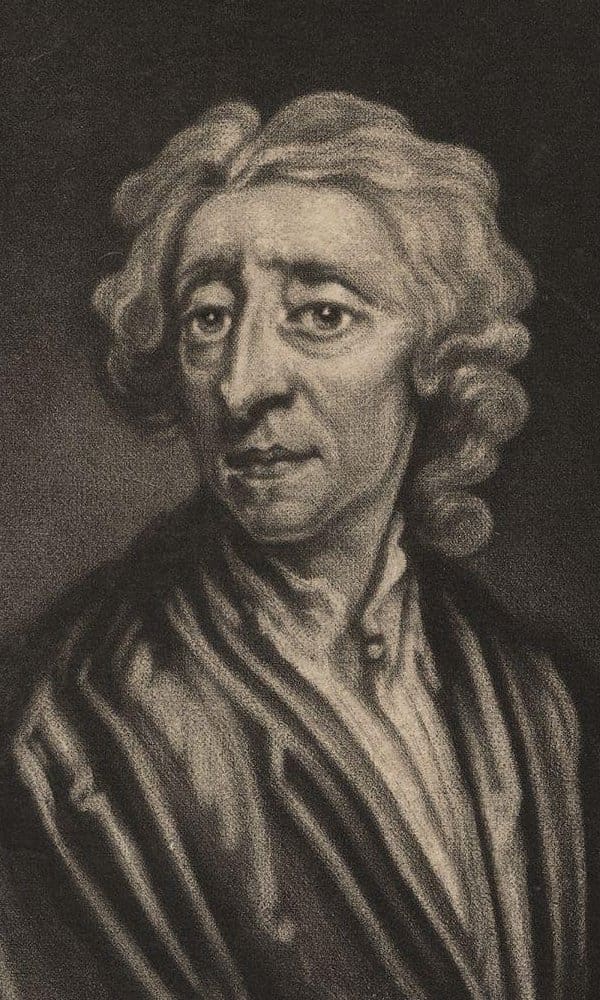
John Simon (died 1751), Public domain, via Wikimedia Commons
John Locke was raised in a low-income home. His father, a captain in the cavalry during the English Civil War, was unable to support his son’s schooling. Thankfully, a member of Parliament stepped up to support Locke’s education, enabling him to continue his studies and eventually turn into one of the most important philosophers of the Enlightenment.
Planning a trip to Paris ? Get ready !
These are Amazon’s best-selling travel products that you may need for coming to Paris.
Bookstore
- The best travel book : Rick Steves – Paris 2023 – Learn more here
- Fodor’s Paris 2024 – Learn more here
Travel Gear
- Venture Pal Lightweight Backpack – Learn more here
- Samsonite Winfield 2 28″ Luggage – Learn more here
- Swig Savvy’s Stainless Steel Insulated Water Bottle – Learn more here
Check Amazon’s best-seller list for the most popular travel accessories. We sometimes read this list just to find out what new travel products people are buying.

